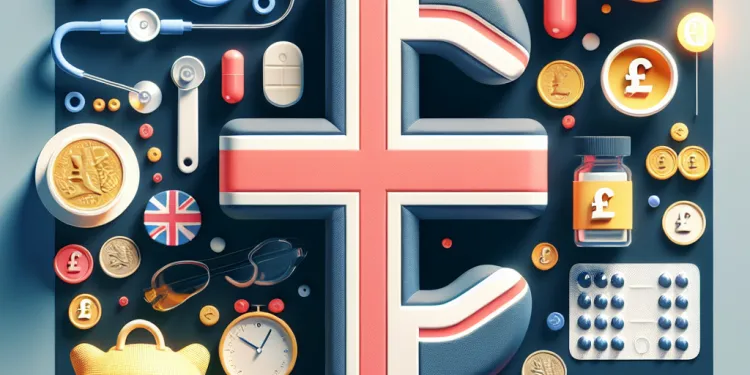
Find Help
More Items From Ergsy search
-
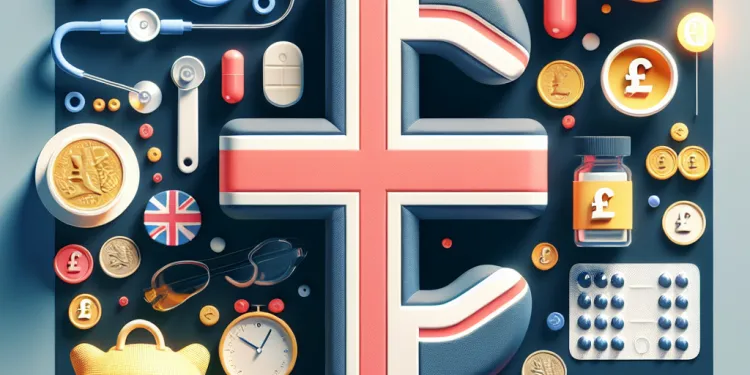
What is Anaemia (iron deficiency)?
Relevance: 100%
-
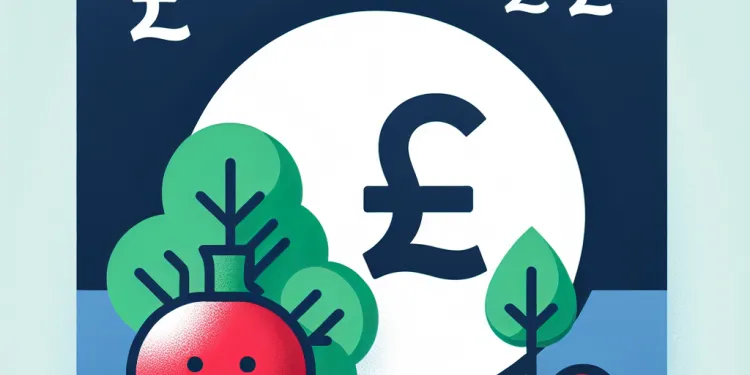
What causes iron deficiency anemia?
Relevance: 96%
-

Anaemia One stop shop
Relevance: 62%
-
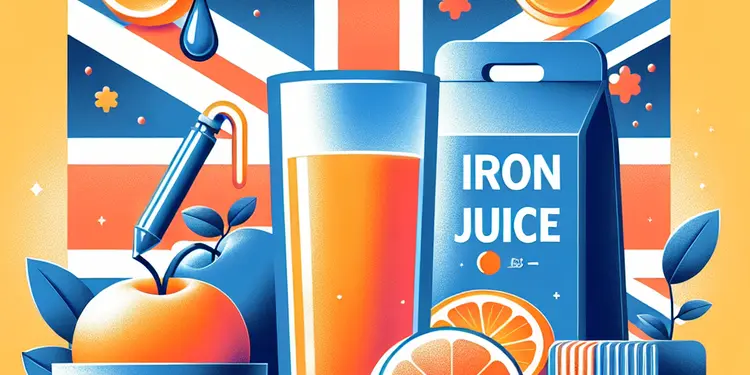
Does orange juice help with iron absorption?
Relevance: 36%
-
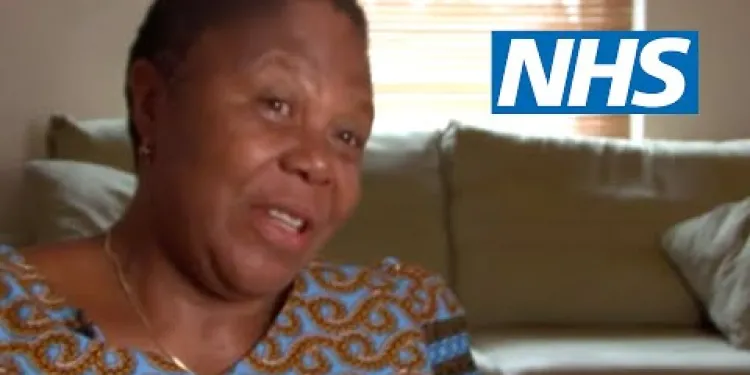
Sickle cell anaemia | NHS
Relevance: 35%
-
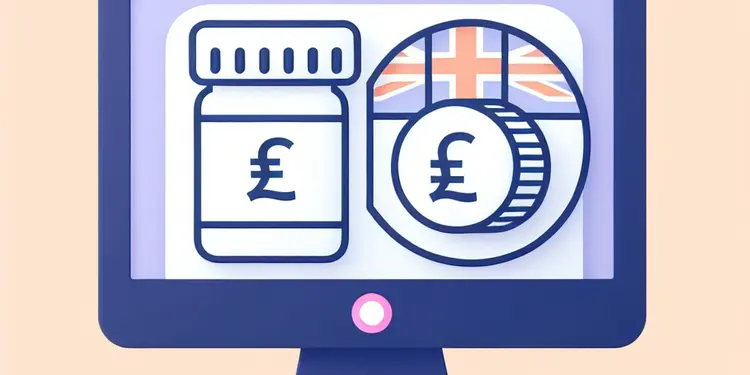
Can weight loss drugs lead to nutritional deficiencies?
Relevance: 28%
-
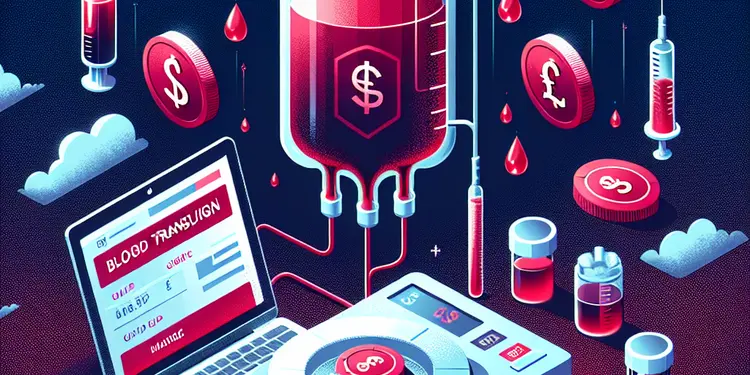
Why might someone need a blood transfusion?
Relevance: 24%
-
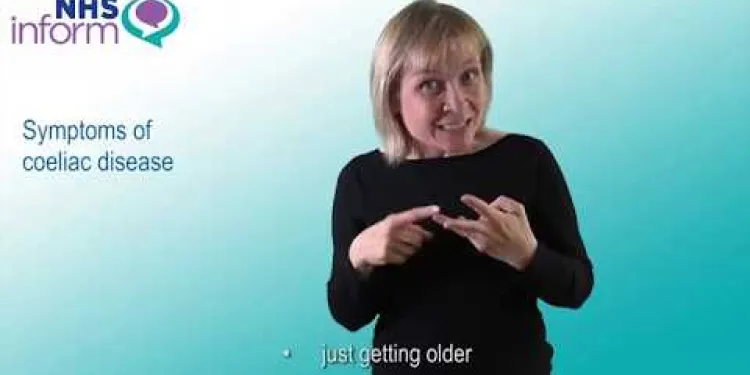
Symptoms of coeliac disease
Relevance: 19%
-
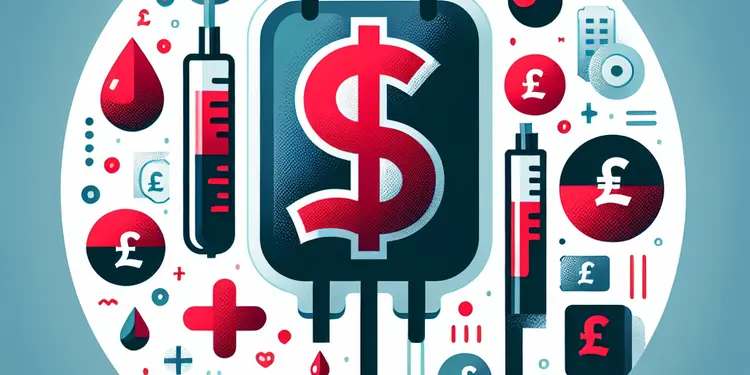
What are some common reasons blood transfusions are needed?
Relevance: 18%
-
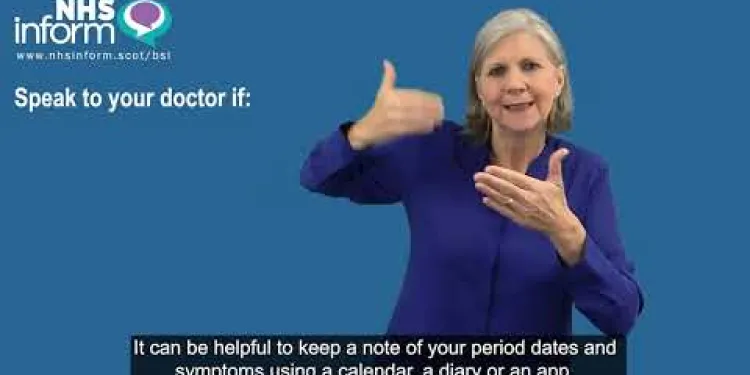
Heavy periods (heavy menstrual bleeding)
Relevance: 17%
-
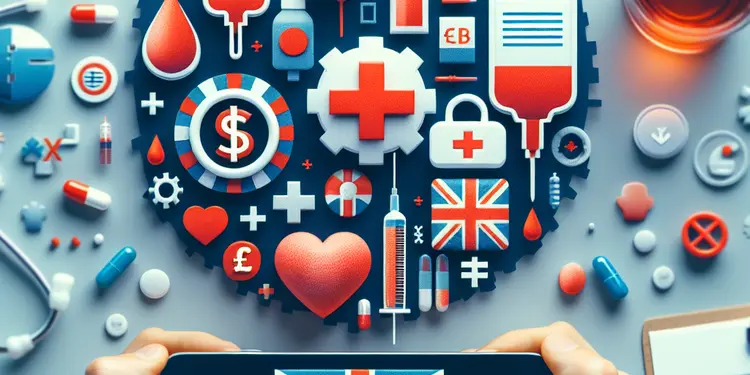
Are there risks associated with blood transfusions?
Relevance: 17%
-
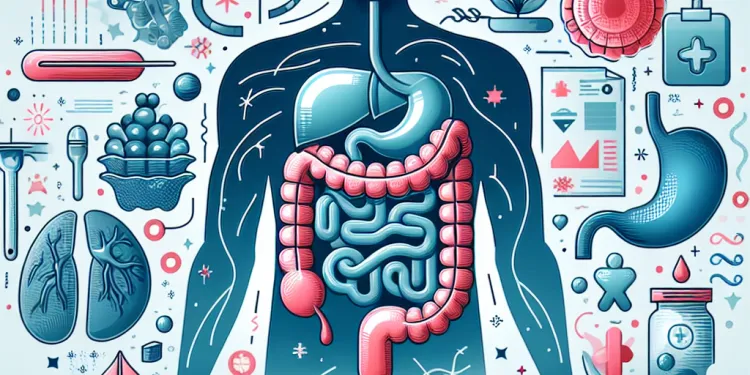
Are there any complications associated with Crohn's disease?
Relevance: 16%
-
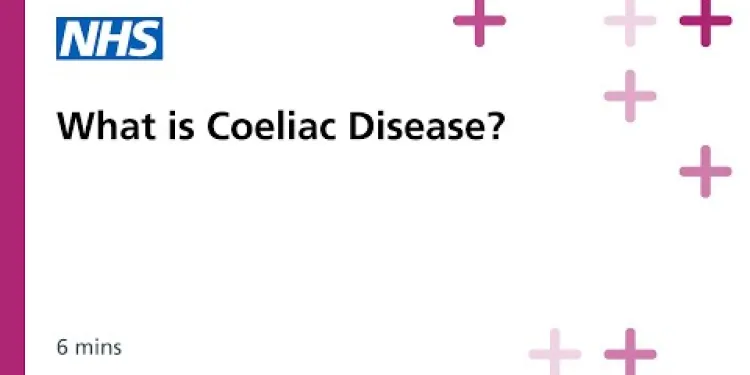
Coeliac Disease: Session 1: What is Coeliac Disease?
Relevance: 15%
-
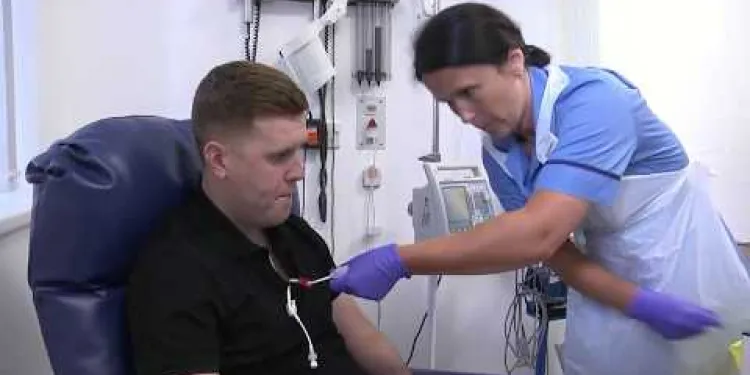
Blood Product Transfusions
Relevance: 15%
-
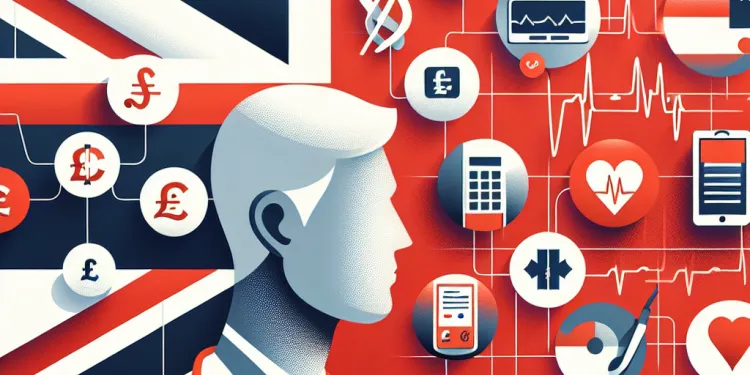
What are the complications of sickle cell disease?
Relevance: 14%
-
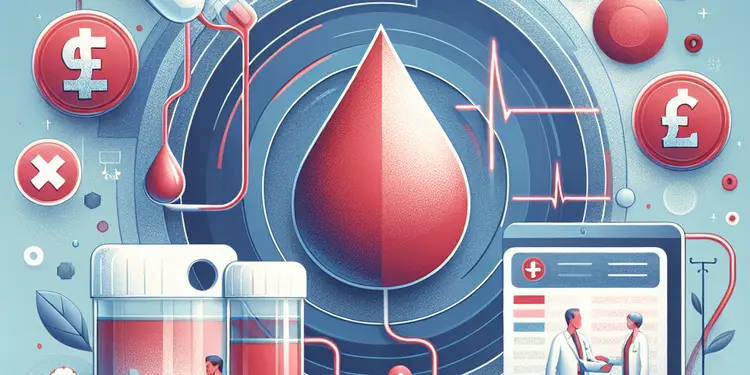
What kind of follow-up care is needed after a blood transfusion?
Relevance: 13%
-
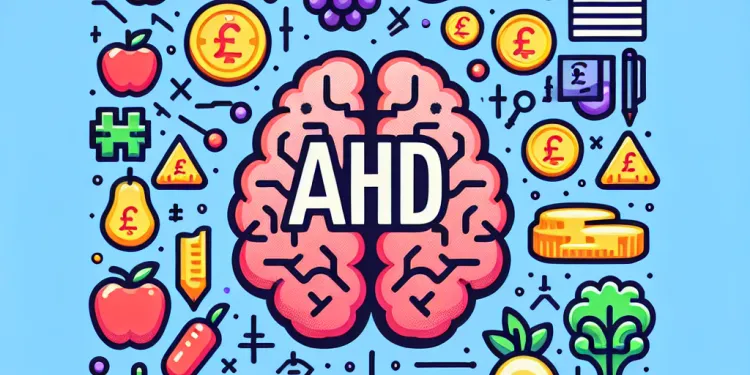
Can diet affect ADHD symptoms?
Relevance: 13%
-
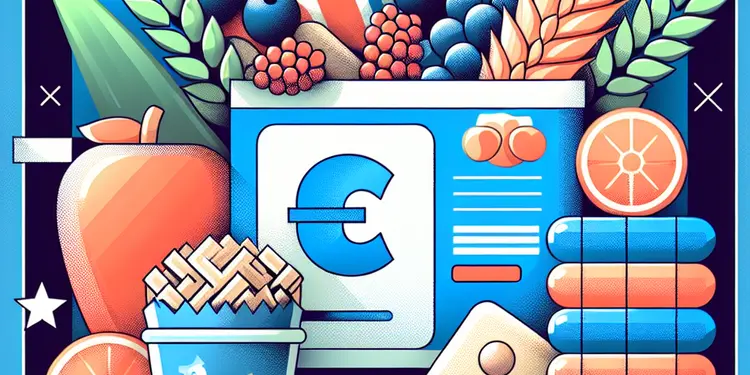
Can too much fiber be harmful?
Relevance: 13%
-
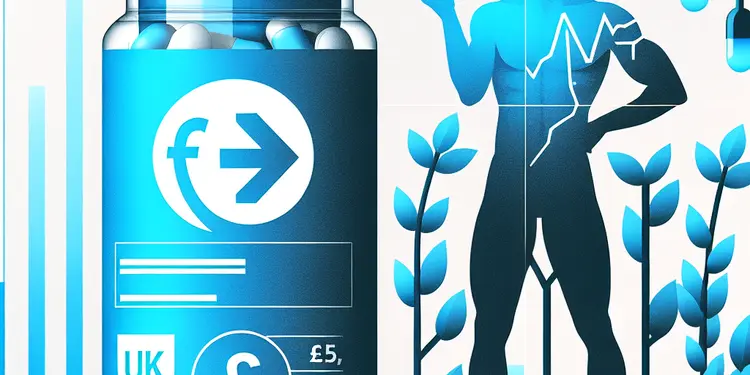
Can weight loss drugs lead to nutritional deficiencies?
Relevance: 13%
-

Can weight loss drugs lead to nutritional deficiencies?
Relevance: 13%
-
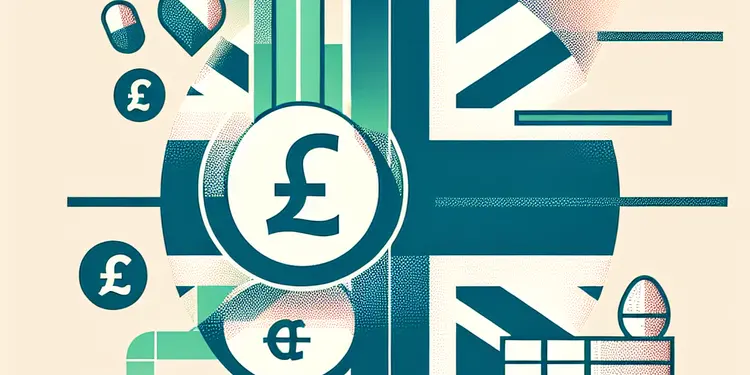
Can weight loss drugs lead to nutritional deficiencies?
Relevance: 13%
-
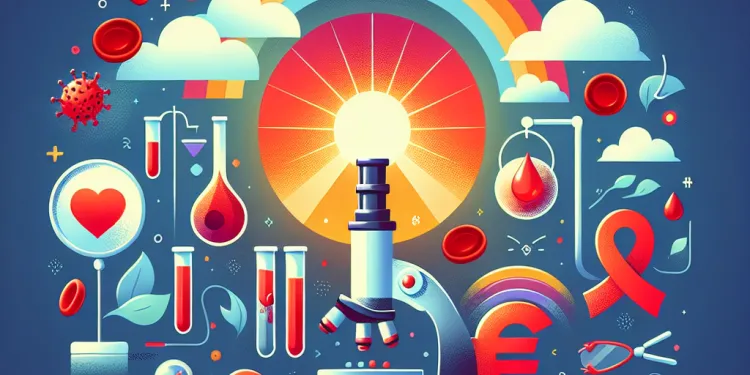
What are the symptoms of sickle cell disease?
Relevance: 13%
-
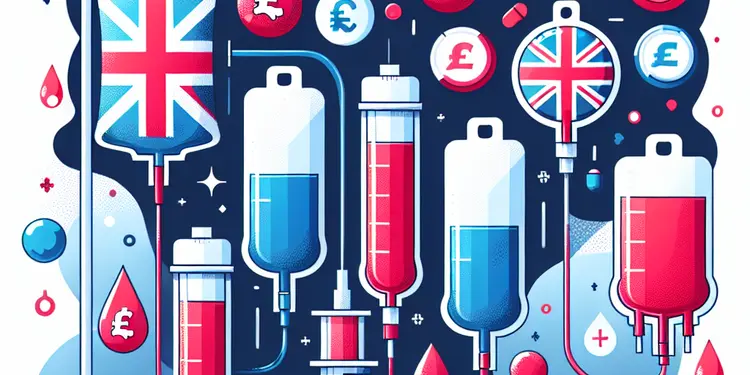
What types of blood products can be transfused?
Relevance: 12%
-
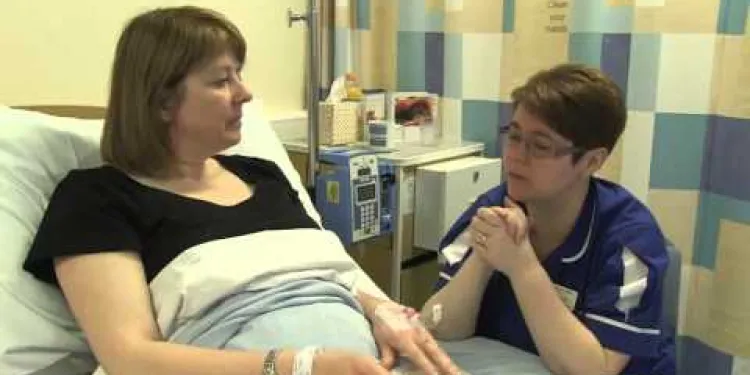
Blood Transfusion
Relevance: 11%
-

Are sea salt and Himalayan pink salt better for you than table salt?
Relevance: 11%
-
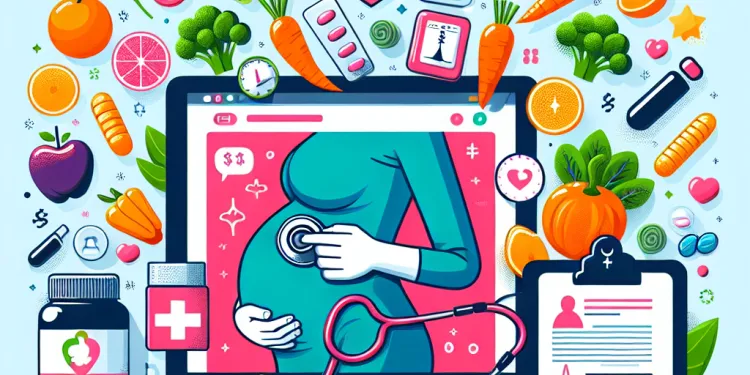
Nutrition for Pregnancy: What to Eat
Relevance: 11%
-

Living Well with Coeliac Disease
Relevance: 11%
-
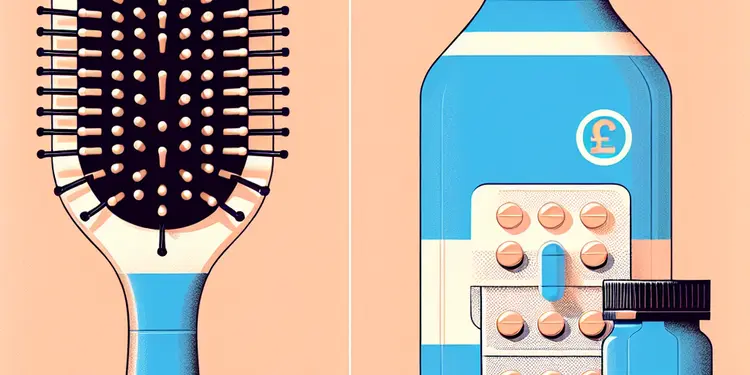
Is there a risk of hair loss with weight loss drugs?
Relevance: 11%
-
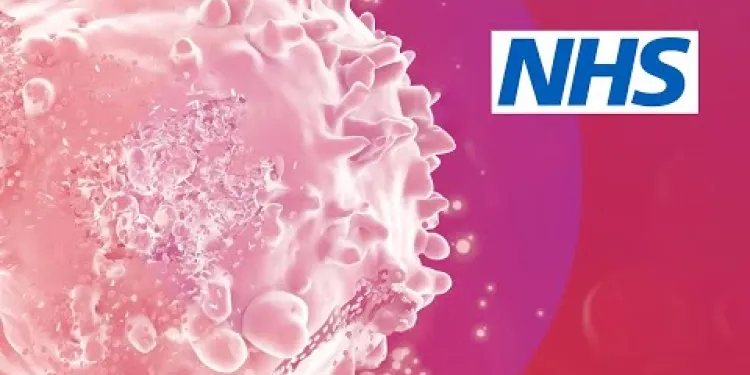
Leukaemia: What are the signs and symptoms? | NHS
Relevance: 11%
-
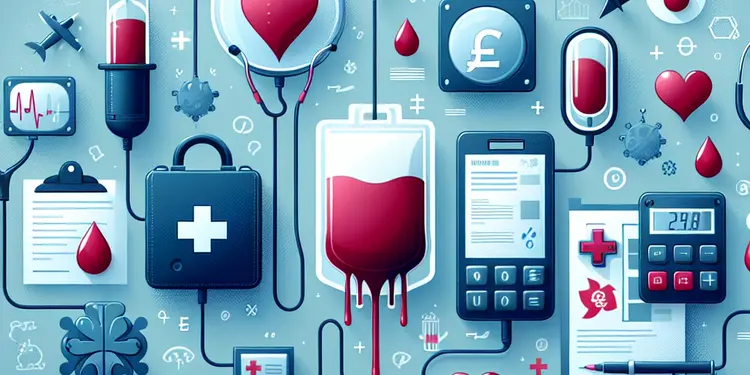
Can certain medical conditions prevent receiving blood transfusions?
Relevance: 10%
-
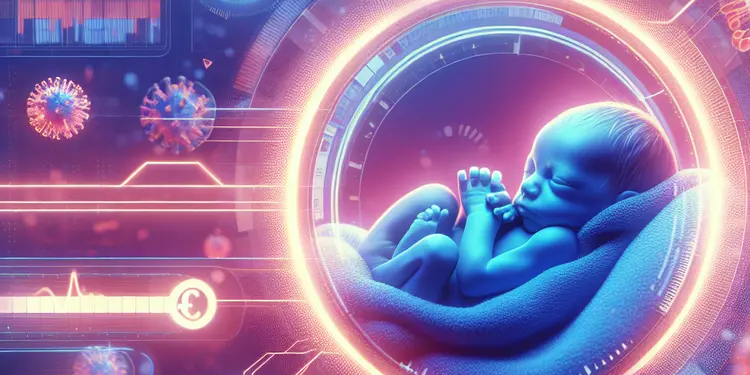
Are there any less common causes of jaundice in newborns?
Relevance: 10%
-
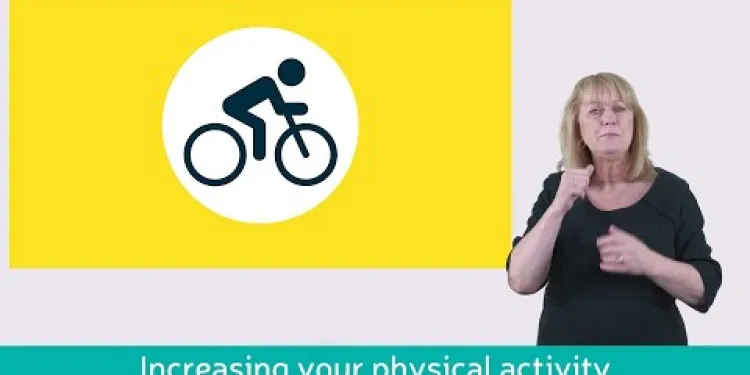
Learn about bowel cancer (British Sign Language version)
Relevance: 10%
-
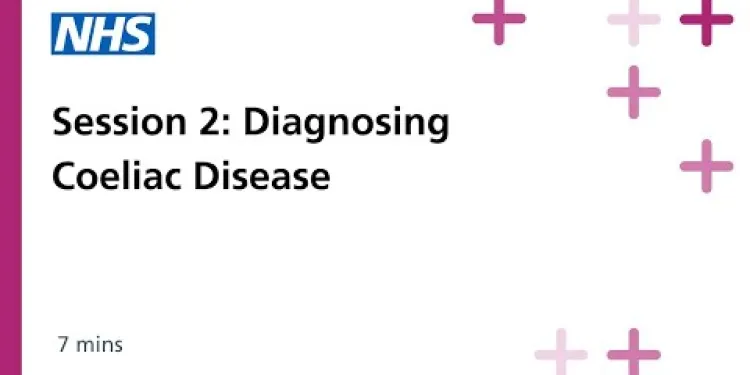
Diagnosing Coeliac Disease Updated 2021
Relevance: 10%
-

Can diet impact postnatal depression?
Relevance: 9%
-
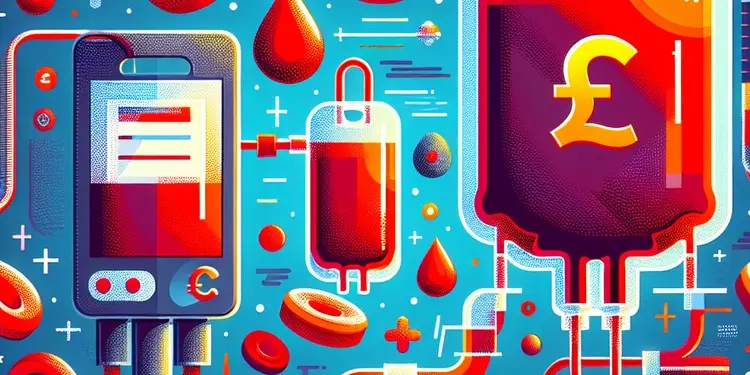
What is a blood transfusion?
Relevance: 9%
-
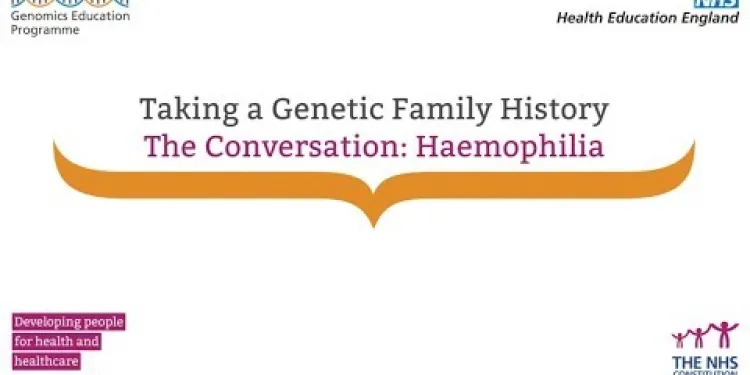
Haemophilia
Relevance: 8%
-
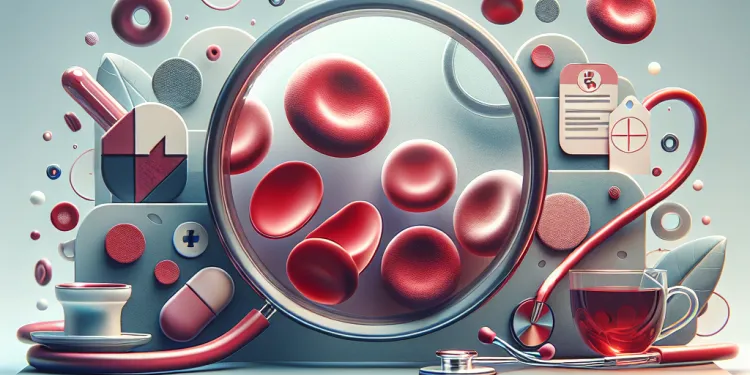
What is sickle cell disease?
Relevance: 8%
-
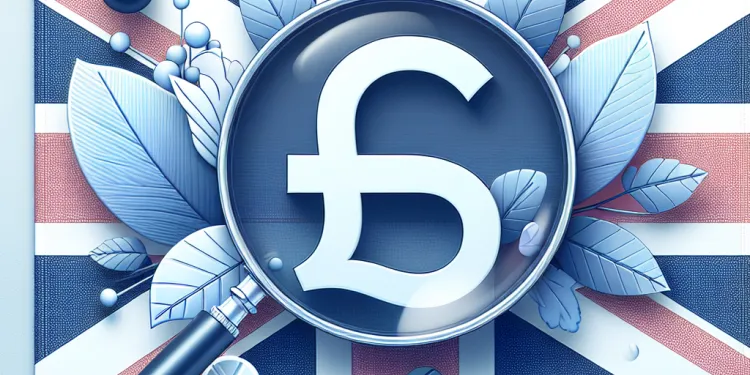
Does Baxdrostat interact with dietary supplements?
Relevance: 7%
-
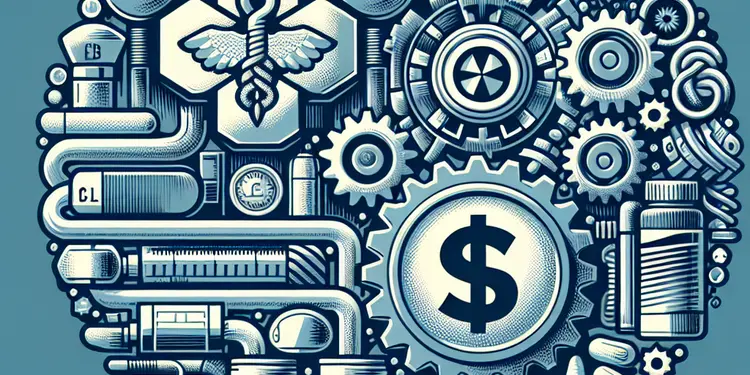
How does Omeprazole work?
Relevance: 7%
-
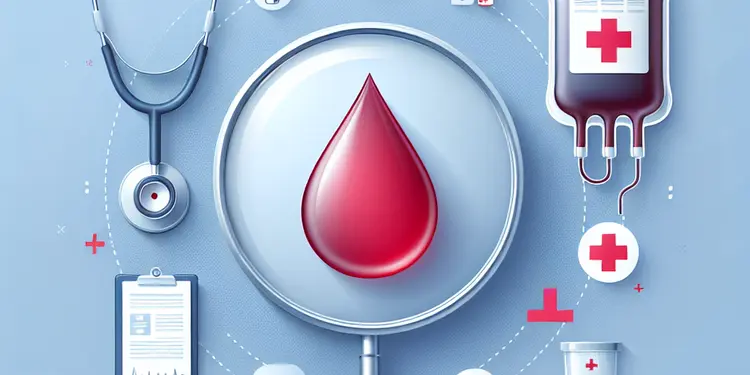
How do doctors determine how much blood is needed for a transfusion?
Relevance: 7%
What is Anaemia (Iron Deficiency)?
Anaemia, specifically iron deficiency anaemia, is a common condition that occurs when the body lacks enough healthy red blood cells due to insufficient iron. Iron is a crucial component of haemoglobin, a protein in red blood cells that enables them to carry oxygen throughout the body. When iron levels are inadequate, haemoglobin production is impeded, leading to a decreased ability for red blood cells to transport oxygen. This results in feelings of fatigue and weakness, among other symptoms.
Causes of Iron Deficiency Anaemia
There are several causes of iron deficiency anaemia. Dietary deficiency is one of the primary causes, as iron is an essential nutrient that must be consumed through food. Those who follow a diet low in iron-rich foods such as red meat, beans, and fortified cereals may be at risk. Another cause is an increased need for iron, as seen in periods of rapid growth such as childhood and pregnancy. Additionally, blood loss can lead to iron deficiency; this is particularly common in women who experience heavy menstrual bleeding or those who suffer from gastrointestinal bleeding, often due to ulcers or other conditions.
Symptoms of Iron Deficiency Anaemia
The symptoms of iron deficiency anaemia vary in severity and can sometimes be subtle, making them easy to overlook. Common symptoms include persistent tiredness or fatigue, weakness, pale skin, and shortness of breath. People may also experience headaches, dizziness, cold hands and feet, and brittle nails. In some instances, individuals may crave non-food items such as ice, known as pica. These symptoms occur because the body's tissues are not receiving an adequate supply of oxygen, which is essential for their proper function.
Diagnosis and Treatment
Iron deficiency anaemia can be diagnosed through blood tests that measure haemoglobin levels and the amount of iron in the blood. If anaemia is suspected, a healthcare provider may also examine the body's iron stores through a serum ferritin test. Once diagnosed, treatment focuses on increasing iron levels in the body. This typically involves dietary changes to include more iron-rich foods and may also include iron supplements. In cases where anaemia is due to underlying conditions such as gastrointestinal bleeding, treating the cause is paramount.
Prevention of Iron Deficiency Anaemia
Preventing iron deficiency anaemia involves maintaining a well-balanced diet that includes adequate amounts of iron. Foods such as lean meats, leafy greens, and legumes are good sources of iron. Additionally, consuming vitamin C-rich foods, such as citrus fruits, can enhance the absorption of iron from plant sources. For those with increased iron needs, such as pregnant women, healthcare providers may recommend iron supplements to prevent anaemia. Regular check-ups and blood tests can help monitor iron levels and ensure that any deficiencies are addressed promptly.
What is Anaemia (Iron Deficiency)?
Anaemia is when your body does not have enough healthy red blood cells because there is not enough iron. Iron helps make red blood cells. These cells carry oxygen around your body. If you don’t have enough iron, your body can’t make enough red blood cells, and they can’t carry oxygen well. This can make you feel tired and weak.
Causes of Iron Deficiency Anaemia
There are several reasons why a person might not have enough iron. One reason is not eating enough foods with iron. Foods like red meat, beans, and cereals have iron in them. Growing children and pregnant women need more iron. Also, losing blood can use up iron, such as bleeding from your gut or heavy periods.
Symptoms of Iron Deficiency Anaemia
The signs of not having enough iron include feeling very tired, feeling weak, having pale skin, and finding it hard to breathe. You might also get headaches, feel dizzy, have cold hands and feet, and have weak nails. Some people even crave things like ice. These happen because your body is not getting enough oxygen.
Diagnosis and Treatment
Doctors can find out if you have iron deficiency anaemia with a blood test. This test checks how much iron and haemoglobin you have. If you need more iron, you can eat foods that have lots of iron in them or take iron pills. If you are losing blood, fixing that problem will also help.
Prevention of Iron Deficiency Anaemia
You can stop iron deficiency anaemia by eating foods that have iron in them. Good choices are lean meat, green vegetables, and beans. Eating foods with vitamin C, like oranges, helps your body take in more iron from plants. Pregnant women might need to take iron pills. Going to the doctor for check-ups and blood tests helps make sure your iron levels are okay.
Frequently Asked Questions
What is anemia?
Anemia is a condition characterized by a deficiency of red blood cells or hemoglobin, leading to reduced oxygen transport in the body.
What causes iron deficiency anemia?
Iron deficiency anemia is caused by insufficient iron, which is necessary for the production of hemoglobin in red blood cells.
What are common symptoms of iron deficiency anemia?
Common symptoms include fatigue, weakness, pale skin, shortness of breath, dizziness, and brittle nails.
Who is at risk for iron deficiency anemia?
At-risk groups include women of childbearing age, pregnant women, infants and children, and people with certain medical conditions or dietary restrictions.
How is iron deficiency anemia diagnosed?
It is diagnosed through blood tests that measure hemoglobin levels, hematocrit, and serum ferritin to assess iron stores.
Can diet help prevent iron deficiency anemia?
Yes, eating iron-rich foods such as red meat, beans, lentils, and fortified cereals can help prevent iron deficiency anemia.
What is the treatment for iron deficiency anemia?
Treatment often includes oral iron supplements and dietary changes to increase iron intake. Severe cases may require intravenous iron or a blood transfusion.
Can iron deficiency anemia affect mental function?
Yes, iron deficiency anemia can lead to cognitive issues, such as difficulties with concentration and memory.
What are potential complications of untreated iron deficiency anemia?
Complications include heart problems, increased risk of infections, and developmental delays in children.
How long does it take to recover from iron deficiency anemia?
Recovery can take a few weeks to several months, depending on the severity of the anemia and the treatment plan.
Is iron deficiency anemia hereditary?
Iron deficiency anemia itself is not hereditary, but some conditions that cause it, like celiac disease, can be hereditary.
Can vegetarians be at risk of iron deficiency anemia?
Yes, vegetarians may be at risk if their diet lacks sufficient iron-rich plant-based foods or they do not consume enough vitamin C to enhance iron absorption.
What role does vitamin C play in iron absorption?
Vitamin C enhances the absorption of non-heme iron (plant-based), making it more bioavailable to the body.
Are there any side effects of iron supplements?
Common side effects include constipation, nausea, and dark-colored stools.
How can heavy menstrual bleeding contribute to anemia?
Heavy menstrual bleeding can lead to significant blood loss, depleting the body's iron stores and potentially causing anemia.
Can children develop iron deficiency anemia?
Yes, rapid growth, insufficient dietary iron, and cow's milk consumption before age one can lead to anemia in children.
What is the difference between anemia and iron deficiency?
Iron deficiency refers specifically to low iron levels, while anemia refers to a deficiency in red blood cells or hemoglobin due to various causes, including iron deficiency.
How does pregnancy affect iron levels?
During pregnancy, a woman's blood volume increases, and iron needs rise to support the developing fetus, increasing the risk of deficiency if intake is insufficient.
What foods should be avoided with iron deficiency anemia?
Foods containing calcium and beverages like coffee and tea can inhibit iron absorption if consumed with iron-rich meals.
Can iron deficiency anemia be prevented?
Yes, with a balanced diet rich in iron and foods that enhance absorption, regular medical check-ups, and addressing underlying conditions, anemia can often be prevented.
What is anemia?
Anemia is when your blood does not have enough healthy red blood cells.
Red blood cells help your body get the oxygen it needs.
If you have anemia, you might feel tired and weak.
To help, you can eat foods with iron or take vitamins.
You can also ask a doctor for advice if you feel tired a lot.
Anemia means you don't have enough red blood cells or something called hemoglobin. This makes it hard for your body to carry oxygen.
Why do people get iron deficiency anemia?
Iron deficiency anemia happens when there is not enough iron in the body. Iron is important because it helps make hemoglobin. Hemoglobin is needed in red blood cells to carry oxygen.
What signs show you might not have enough iron in your blood?
Iron deficiency anemia means your body doesn't have enough iron. Here are signs to look for:
- Feeling tired or weak.
- Having pale skin.
- Feeling dizzy or lightheaded.
- Having a fast heartbeat.
- Feeling short of breath.
- Having a sore or swollen tongue.
- Having cold hands and feet.
If you think you have these signs, talk to a doctor. You can also use tools like picture cards or easy-to-read guides to help understand more.
Here are some signs you might notice:
- Feeling very tired
- Feeling weak
- Pale skin
- Finding it hard to breathe
- Feeling dizzy
- Weak nails that easily break
If reading is tough, you can ask someone to read out loud for you or use a tool that reads text aloud. You can also use pictures to help understand the words better.
Who can get iron deficiency anemia?
Some people can get sick because they don’t have enough iron. This is called iron deficiency anemia. Here are some people who might get this:
- Babies and small children
- Women who are having babies
- Girls and women who have periods
- People who don’t eat meat
- People who lost a lot of blood
If you are worried, talk to a doctor. They can help you feel better.
You can use pictures or videos to learn more.
Some people need extra care. These people include:
- Women who can have babies
- Women who are going to have a baby
- Babies and children
- People who have some health problems or who have to eat special food
If you have these worries, talk to a doctor or a nurse. They can help.
How do doctors find out if someone has iron deficiency anemia?
Doctors find out if someone has this problem by doing blood tests. These tests look at the amount of a thing in your blood called hemoglobin. They also check hematocrit and another thing called serum ferritin, which shows how much iron is in your body.
Can food stop you from having low iron?
Yes, eating foods with lots of iron can help stop you from getting sick with iron deficiency anemia. Good foods to eat are red meat, beans, lentils, and cereals with extra iron.
How can we help someone who does not have enough iron in their blood?
Treatment usually means taking iron pills and eating more iron-rich foods. If the problem is very bad, a doctor might give you iron through a needle or a blood transfusion.
Does not having enough iron in your blood make it hard to think?
Yes, not having enough iron in your body can make it hard to think clearly. It can also make it hard to remember things.
What happens if we don't treat low iron in the blood?
If we don't fix low iron, it can make us tired. We might feel weak and get sick easily. Our heart might work harder to pump blood.
If you need help reading, you can ask someone to read with you. Drawing pictures can also help you understand better.
Some problems can happen. These include heart problems, getting sick more easily, and children growing or learning more slowly than usual.
How long does it take to get better from iron deficiency anemia?
Iron deficiency anemia is when your body doesn't have enough iron. Iron helps your body make healthy red blood cells. Without enough iron, you might feel tired or weak.
Getting better can take a few weeks. You might need to eat foods with more iron or take iron medicine. Some people feel better in a month, but for others, it can take longer.
Here's how you can help yourself get better:
- Eat foods like red meat, beans, and leafy green vegetables.
- Take iron medicine if your doctor says you need it.
- Visit your doctor to check if you are getting better.
Getting better can take a few weeks to a few months. This depends on how bad the anemia is and the treatment plan.
Can you get iron deficiency anemia from your parents?
Iron deficiency anemia means you don't have enough iron in your blood.
You might get it from your parents through their genes.
If people in your family have it, you might have it too.
Talk to a doctor if you're worried.
They can help you check your iron levels.
Here are some helpful things you can try:
- Eat foods with lots of iron, like meat, beans, and spinach.
- Use a calendar to track how you feel. Share it with your doctor.
- Ask a family member or friend to help you understand and remember what the doctor says.
Iron deficiency anemia is not something you get from your family. But some health problems that cause it, like celiac disease, can run in families.
Can people who don't eat meat have low iron?
People who don't eat meat are called vegetarians.
Iron is important for strong blood and helps keep you healthy.
Not eating meat can sometimes mean getting less iron. This might make you feel tired and weak.
To stay healthy, vegetarians can eat foods with lots of iron, like beans, lentils, and spinach.
Using tools like picture books or apps can help learn more about other good foods with iron!
Yes, people who do not eat meat (vegetarians) might not get enough iron. This can happen if they do not eat enough foods with iron or vitamin C. Vitamin C helps the body use iron better.
Here are some ways to help:
- Eat lots of beans, lentils, and spinach. These foods have iron.
- Eat fruits like oranges or berries. They have vitamin C.
- Talk to a doctor or dietitian for more help.
How does vitamin C help the body use iron?
Vitamin C helps your body take in more iron from plants. This makes it easier for your body to use the iron.
Do iron pills have any side effects?
Some things that might happen are:
- Feeling blocked up or not being able to poo.
- Feeling like you might be sick (nausea).
- Poo might be a dark color.
Here are some things that might help:
- Drink lots of water to help with being blocked up.
- Eat fruits and veggies to keep things moving in your tummy.
- Tell an adult or a doctor if you feel sick.
How does heavy bleeding during periods cause anemia?
When someone has very heavy periods, they can lose a lot of blood. This can make the body lose iron, which is important for staying healthy. Losing too much iron can lead to a condition called anemia, where you feel really tired and weak.
Can kids have iron problems?
Kids can have iron problems if they don't get enough iron from food. Iron helps make their blood strong.
Some signs are feeling tired, looking pale, or getting sick a lot.
To help, kids can eat foods like meat, eggs, beans, and spinach. A doctor can also help.
Parents can use pictures, stories, or videos to explain this to their kids.
Yes, children can get anemia if they grow fast, don’t eat enough iron-rich foods, or drink cow’s milk before they turn one.
How are anemia and iron deficiency different?
Anemia and iron deficiency are not the same. Here is how they are different:
- Anemia: This happens when your body does not have enough red blood cells. Red blood cells carry oxygen in your blood.
- Iron Deficiency: This is when your body does not have enough iron. Iron helps make red blood cells.
If you need help, ask a doctor or nurse. You can also use picture books or apps that use simple words.
Iron deficiency means your body doesn't have enough iron. Anemia is when you don't have enough red blood cells or something called hemoglobin. This can happen for many reasons, one of which is not having enough iron.
How does pregnancy change iron levels?
When a woman is pregnant, her body needs more iron. Iron helps to make more blood for the growing baby. It is important to have enough iron. Low iron can make you feel tired.
To help, you can eat foods with iron, like red meat, beans, and spinach. You can also talk to a doctor about taking iron tablets.
Using pictures or charts can help you understand how iron helps during pregnancy. If reading is hard, listening to someone explain it can also help.
When a woman is pregnant, the amount of blood in her body goes up. She needs more iron to help the baby grow. If she doesn’t get enough iron, she might not have enough for herself and the baby.
What foods should you not eat if you have low iron?
Some foods and drinks can make it harder for your body to use iron. Milk and cheese have calcium, which can stop iron from working. Drinks like coffee and tea can do this too, if you have them with meals that have lots of iron.
How can you stop getting iron deficiency anemia?
Yes, you can stop anemia. Eat healthy foods with iron, have regular health check-ups, and talk to a doctor if you feel unwell.
Useful Links
This website offers general information and is not a substitute for professional advice.
Always seek guidance from qualified professionals.
If you have any medical concerns or need urgent help, contact a healthcare professional or emergency services immediately.
- Ergsy carfully checks the information in the videos we provide here.
- Videos shown by Youtube after a video has completed, have NOT been reviewed by ERGSY.
- To view, click the arrow in centre of video.
- Most of the videos you find here will have subtitles and/or closed captions available.
- You may need to turn these on, and choose your preferred language.
- Go to the video you'd like to watch.
- If closed captions (CC) are available, settings will be visible on the bottom right of the video player.
- To turn on Captions, click settings .
- To turn off Captions, click settings again.
More Items From Ergsy search
-

What is Anaemia (iron deficiency)?
Relevance: 100%
-

What causes iron deficiency anemia?
Relevance: 96%
-

Anaemia One stop shop
Relevance: 62%
-

Does orange juice help with iron absorption?
Relevance: 36%
-

Sickle cell anaemia | NHS
Relevance: 35%
-

Can weight loss drugs lead to nutritional deficiencies?
Relevance: 28%
-

Why might someone need a blood transfusion?
Relevance: 24%
-

Symptoms of coeliac disease
Relevance: 19%
-

What are some common reasons blood transfusions are needed?
Relevance: 18%
-

Heavy periods (heavy menstrual bleeding)
Relevance: 17%
-

Are there risks associated with blood transfusions?
Relevance: 17%
-

Are there any complications associated with Crohn's disease?
Relevance: 16%
-

Coeliac Disease: Session 1: What is Coeliac Disease?
Relevance: 15%
-

Blood Product Transfusions
Relevance: 15%
-

What are the complications of sickle cell disease?
Relevance: 14%
-

What kind of follow-up care is needed after a blood transfusion?
Relevance: 13%
-

Can diet affect ADHD symptoms?
Relevance: 13%
-

Can too much fiber be harmful?
Relevance: 13%
-

Can weight loss drugs lead to nutritional deficiencies?
Relevance: 13%
-

Can weight loss drugs lead to nutritional deficiencies?
Relevance: 13%
-

Can weight loss drugs lead to nutritional deficiencies?
Relevance: 13%
-

What are the symptoms of sickle cell disease?
Relevance: 13%
-

What types of blood products can be transfused?
Relevance: 12%
-

Blood Transfusion
Relevance: 11%
-

Are sea salt and Himalayan pink salt better for you than table salt?
Relevance: 11%
-

Nutrition for Pregnancy: What to Eat
Relevance: 11%
-

Living Well with Coeliac Disease
Relevance: 11%
-

Is there a risk of hair loss with weight loss drugs?
Relevance: 11%
-

Leukaemia: What are the signs and symptoms? | NHS
Relevance: 11%
-

Can certain medical conditions prevent receiving blood transfusions?
Relevance: 10%
-

Are there any less common causes of jaundice in newborns?
Relevance: 10%
-

Learn about bowel cancer (British Sign Language version)
Relevance: 10%
-

Diagnosing Coeliac Disease Updated 2021
Relevance: 10%
-

Can diet impact postnatal depression?
Relevance: 9%
-

What is a blood transfusion?
Relevance: 9%
-

Haemophilia
Relevance: 8%
-

What is sickle cell disease?
Relevance: 8%
-

Does Baxdrostat interact with dietary supplements?
Relevance: 7%
-

How does Omeprazole work?
Relevance: 7%
-

How do doctors determine how much blood is needed for a transfusion?
Relevance: 7%


